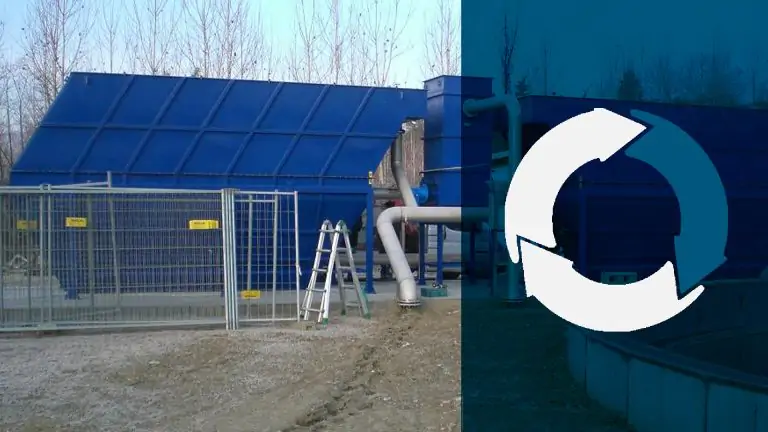
Primary Treatments of Wastewater
This is why "upstream" technologies must be reliableThis is the first stage of civil water purification: primary treatments (such as desanding, de-oiling, settling) are responsible for removing the “coarse” component of the effluent. Simplicity and reliability are the advantages required by these systems, especially considering that the quality of the treated water will affect the operation of downstream technologies.
Systems for primary treatments
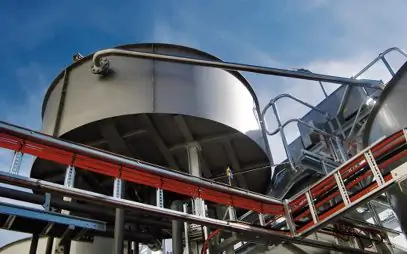
Mitadaf MD Dissolved Air Flotation Units
Mitadaf is the dissolved air flotation (DAF) system developed by MITA Water Technologies. Its outstanding efficiency in separating solids from liquid and thickening sludge comes from a unique approach that combines the use of microbubbles of air, produced by our Mitasat MS, with a uniform effluent hydrodynamic system.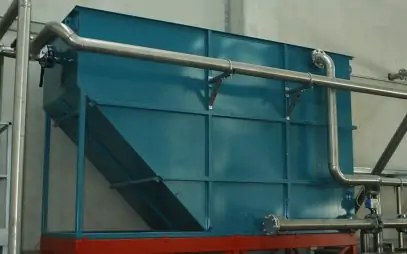
Oilpack Oil Separators Monoblock OM
These one-piece oil separators are designed to separate non-emulsified oils and consist of a containment tank, made of treated and painted carbon steel or AISI 304 stainless steel or stainless steel according to the customer's choice, and a 45° inclined parallel channel lamella pack made of UV-resistant polystyrene. Customizations with special materials are available upon request.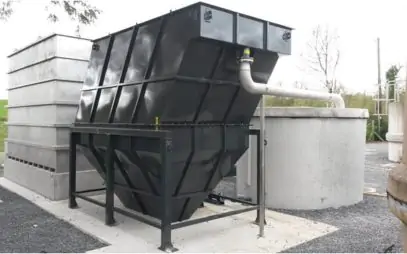
Flowpack Lamella Decanters Monoblock FM
Solid-liquid separation, sludge decanting, water clarification for further finishing operations-all these are represented by the FM Monoblock Series lamella decanters. Compact, efficient and space-saving solution. Simplicity of operation and very low product life cycle costs are pluses appreciated by customers in the civil and industrial fields.Framing: the primary treatments
The objective of so-called primary wastewater treatments is to remove the “coarser” component of the effluent: sands, oils and grease, a substantial portion of larger suspended solids. This is usually a non-self-contained stage of treatment, which in fact should reduce the pollutant load and facilitate subsequent interventions.
We usually speak of “primary treatment” (and then secondary and tertiary) only in the case of municipal wastewater, i.e., in the context of public sewage treatment plants: in this case, European and national standards provide a very clear sequence of treatments and related technologies to support them (what is not always the case in the case of industrial wastewater).
Here is a list of the main primary treatments.
- Desanding: these are steps involved in the removal of heavy substances such as sands and stones, respectively.
- De-oiling: this is the separation of oils or hydrocarbons by taking advantage of their lower specific gravity than that of water.
- Screening: a process to separate solid substances such as debris, solid wastes, foams and sands by means of banded or mesh screens. This can be done with more or less fine grids.
- Primary sedimentation: this is the aggregation of suspended particles in the effluent and their subsequent settling to the bottom of the catch basin.
- Other types of primary treatment: interventions with Imhoff tanks, degreasers and desanders fall into this categorization.

MITA's systems for primary treatments
MITA Water Technologies can support municipal corporation and industry customers with two solutions in particular for those concerning primary wastewater treatment.
- Lamella-pack oil separators: consisting of the only lamellar pack with parallel channels made of rigid polystyrene, stabilized against UV rays.
- Dissolved air floatation units (DAF): combined system of uniform hydrodynamics and microbubble bed filtration.
- Lamella-pack clarifiers. Their lamella structure allows settling the “heavier” part present in the effluent.
Benefits with MITA's primary treatment systems
- High removal efficiency of suspended solids.
- Reliability in wastewater treatment for subsequent stages.
- Ease of operation.
- Low operating and maintenance costs.
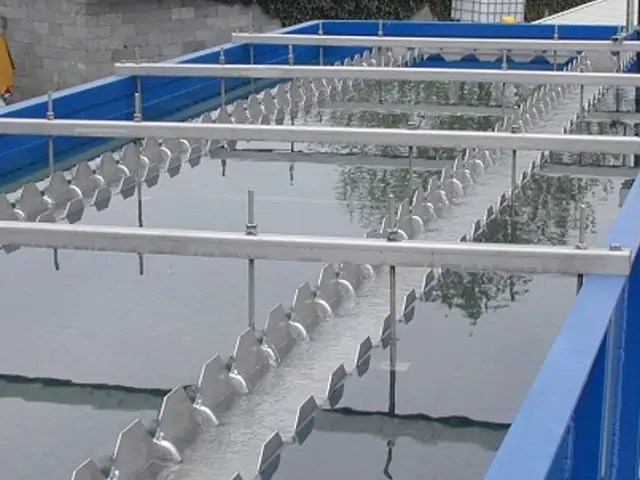
Lamella Clarifiers for an Industry in Tanzania
An industry that specializes in cleaning tanker trucks needs to treat the oils in the raw effluent: the three oil separators supplied by MITA Water Technologies provide effective oil removal, ensuring treated water that meets quality requirements. Also highly rated MITA's on-site support.
Read moreWhat is your process goal?
Resources
Needs of wastewater treatment
Discover the solution for all needsComparing different technologies
Find out all the different technologiesFind out more
All technical articlesOr You Can Choose
Our Newsletter
Sign up for the MITA Water Technologies newsletter: stay up-to-date on systems for municipal and industrial wastewater treatment and filtration.